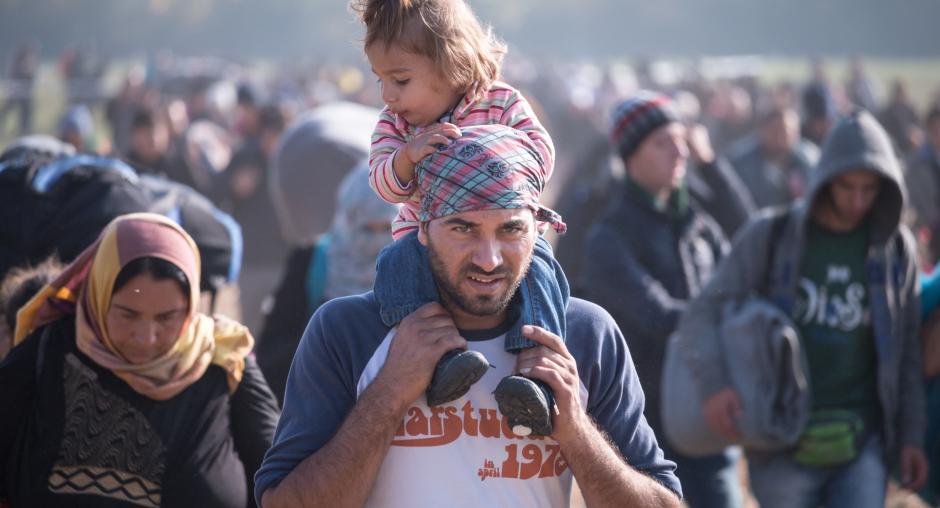OSCE and UNHCR debunking myths about migration and refugee flows
OSCE and UNHCR are joining forces this week to debunk myths about migration and refugee flows, explore solutions and ultimately call for action to combat intolerance of and discrimination against migrants and refugees.
This joint inter-agency co-operation aims to break down prejudices and develop positive narratives on migrants and refugees, helping to support migrant and refugee integration, combat hate crimes, and build coalitions to address racism and xenophobia.
Incidents of intolerance, discrimination, hate speech and hate crimes against migrants and refugees are rising, and the importance and relevance of inclusion and diversity is not getting enough attention. A group of OSCE and UNHCR experts aims to change that through addressing intolerance of and discrimination of migrants and refugees and by exchanging good practices to change toxic narratives.
“Finding durable solutions for refugees, including through local integration in host communities, is essential. The stories of their contributions to societies are under told, while misinformation is easily spread. We work jointly to ensure progress in the fight against intolerance and discrimination of refugees, asylum-seekers, stateless persons, and migrants,” said Christoph Bierwirth, UNHCR.
Luca Pianese, OSCE Senior Migration and Security Expert, said that the OSCE migration-related commitments consider migration as both an economic growth engine and a means to reduce inequalities. “We must work to increase legal migration channels, not only labour-driven but for education purposes, training and skills.”
Discrimination on social media
The first in a series of meetings focused on how to address discrimination and hatred on social media and ways to address them.
Examples shared by staff in the OSCE and UNHCR field offices showed that a balance needed to be struck between taking action against hate speech, fake news, manipulation and incitement to violence on the one side, and freedom of expression and diversity of opinions on the other side. One strategy UNHCR is pursuing currently is changing the narrative by publishing positive stories of refugees contributing to their host societies. Furthermore, vulnerable individuals and exposed communities should not be silenced while tackling illegal and harmful content online but should be given a voice to express themselves.
Jürgen Heissel, Director of the OSCE Office of the Representative on Freedom of the Media, said that with a few tech companies controlling the most popular social media platforms, a co-ordinated effort between these companies, policymakers and experts was needed. “We must aim to establish a common understanding about the way platforms operate and the instruments available to State authorities and platforms.”
“Media and political rhetoric, including the use of specific, dehumanizing terminology, can create a toxic, racist and xenophobic environment,” said Christie Edwards, Deputy Head of ODIHR’s Tolerance and Non-Discrimination Department. “Racism, xenophobia and hate crime against migrants is a complex and growing challenge that we should jointly work on.”
What is next?
The next online meeting will focus on shaping positive public perceptions and attitudes towards migrants and refugees. The aim is to make better use of research on public opinion on migration and forced displacement in their work.
#OSCEMigration #StandUp4HumanRights #SDG10
@Refugees, @RefugeesMedia, @OSCE, @OSCE_RFOM, @OSCE_ODIHR

